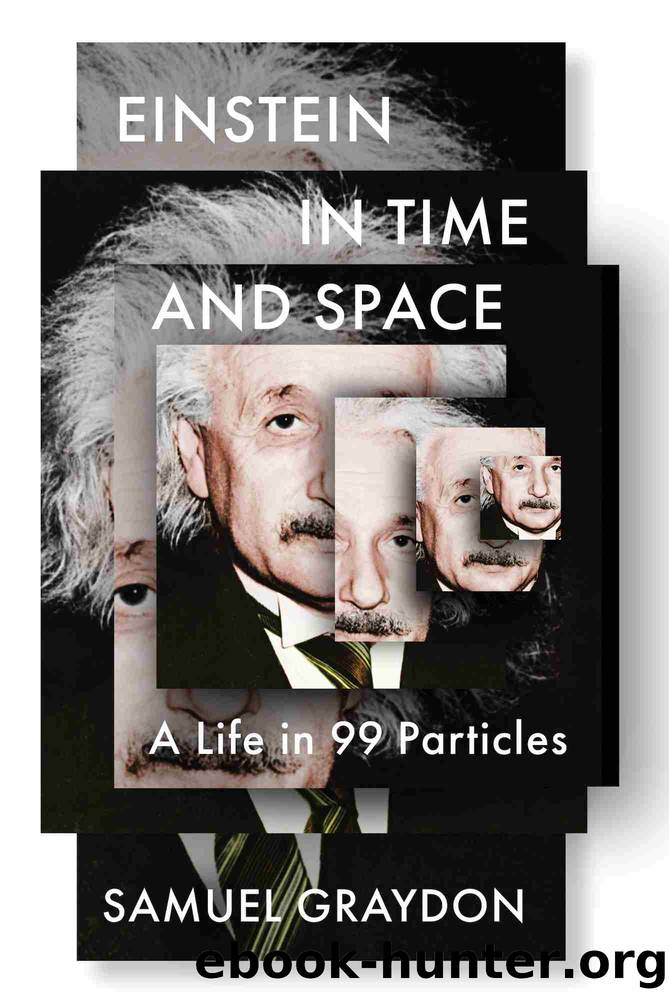Einstein in Time and Space by Samuel Graydon

Author:Samuel Graydon
Language: eng
Format: epub
Publisher: Scribner
Published: 2023-11-14T00:00:00+00:00
49
By the time he was awarded a Nobel Prize, Einstein had been nominated sixty-two times, and his nominees had included eight Nobel laureates. It was generally agreed that the award was overdue.
One reason for the delay was that the Nobel Academy was biased against theoretical physics, preferring science that could be tested by experiment. Relativity, it was argued, was unproven, and a little otherworldly. It didnât do much for Einsteinâs case that he happened to be Jewish. The academy continued to hold out from recognizing relativity even after Eddingtonâs successful solar eclipse expedition. The 1920 prize was given to the Swiss physicist Charles-Edouard Guillaume for his discovery of anomalies in nickel steel, and the 1921 prize was not awarded at all. Better no winner than Einstein.
Einsteinâs reputation and fame could not be ignored, however. In 1922, he was retrospectively awarded the prize for 1921. Niels Bohr took the prize for 1922. Even so, Einstein wasnât awarded his Nobel Prize for relativity. Instead, it was for his discovery of the law of the photoelectric effect, which had laid out the modern conception of light as a particle. This was worthy of an accolade in its own right, but that the academy should single it out to the exclusion of relativity seemed jarring.
Einstein didnât attend the award ceremony in Sweden. In June 1922, Einsteinâs friend Walther Rathenau, the German foreign minister, was assassinated by members of an ultranationalist, antisemitic organization. The police advised Einstein that he should perhaps lie low or even leave Berlin for a while, as his name was known to be on target lists held by Nazi sympathizers. Initially, he was not to be shaken, and in August he defiantly agreed to be exhibited in a car, driven around a huge pacifist rally in the city. But a month later, after a fortuitous offer from a Japanese publisher, he decided to undertake an extensive tour of Asia and what is now Israel. The offer from the academy came shortly before he was due to travel, and with the atmosphere as it was in Berlin, it seemed imprudent to cancel the trip.
At the ceremony in December the chairman of the awards committee made it clear in his speech that, while Einstein was best known for relativity, that was not why he had received the Nobel Prize. Relativity, he claimed, essentially had to do with epistemologyâthe philosophy of knowledgeârather than science. To receive his prize money, Einstein needed to give a Nobel lecture, as was the case for all laureates. And when he was finally able to deliver his talkâin Gothenburg in July 1923, to an audience of two thousand people, including the king of Swedenâhe did so exclusively on the âFundamental Ideas and Problems of the Theory of Relativity.â
The money awarded to Einstein was significantâ120,000 Swedish kronorâbut he didnât benefit from it directly. In his divorce agreement with MariÄ, he had suggested that if he ever won the Nobel Prize, the money should be paid in full to her and their sons, so that they might live off the interest.
Download
This site does not store any files on its server. We only index and link to content provided by other sites. Please contact the content providers to delete copyright contents if any and email us, we'll remove relevant links or contents immediately.
The Complete Stick Figure Physics Tutorials by Allen Sarah(6650)
Secrets of Antigravity Propulsion: Tesla, UFOs, and Classified Aerospace Technology by Ph.D. Paul A. Laviolette(3591)
Thing Explainer by Randall Munroe(3337)
The River of Consciousness by Oliver Sacks(2999)
The Order of Time by Carlo Rovelli(2737)
I Live in the Future & Here's How It Works by Nick Bilton(2534)
How To by Randall Munroe(2500)
A Brief History of Time by Stephen Hawking(2483)
The Great Unknown by Marcus du Sautoy(2195)
What If?: Serious Scientific Answers to Absurd Hypothetical Questions by Randall Munroe(2179)
Blockchain: Ultimate Step By Step Guide To Understanding Blockchain Technology, Bitcoin Creation, and the future of Money (Novice to Expert) by Keizer Söze(2144)
Midnight in Chernobyl by Adam Higginbotham(2084)
Networks: An Introduction by Newman Mark(2003)
The Meaning of it All by Richard Feynman(1915)
Easy Electronics by Charles Platt(1871)
The Tao of Physics by Fritjof Capra(1861)
When by Daniel H Pink(1781)
Midnight in Chernobyl: The Untold Story of the World's Greatest Nuclear Disaster by Adam Higginbotham(1777)
Introducing Relativity by Bruce Bassett(1758)
